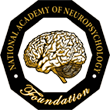 What is an Intellectual Disability?
What is an Intellectual Disability?
The term Intellectual Disability (ID), sometimes called intellectual developmental disorder, refers to problems with thinking and daily living skills, such as learning and remembering, speaking, making friends, and taking care of themselves. These problems can range from a mild level of severity to a severe, or profound level. In most cases, an ID is present at birth, and by definition, the problems must begin in childhood or adolescence. However, symptoms may not be noticed until critical early milestones are delayed or missed, like learning to talk or feed oneself. Persons with ID often need special education in school, and some level of help with everyday life.
Diagnosis
An ID can be diagnosed when a child has:
- A low IQ score (70 or below)
- Delays in functioning, such as problems with:
- Communication
- Self-help skills (feeding, dressing, etc.)
- Social skills
- Learning
Risk Factors
Infants and Children

- Trouble sitting up
- Late crawling, walking, and talking
- Needs extra help with eating, grooming, and dressing
- Poor coordination
- Late potty training
- Acts younger than peers
- Trouble making friends the same age
- Learning problems/difficulty in school
- May have widely-spaced eyes
Adults
 Poor language skills (poor understanding and trouble speaking)
Poor language skills (poor understanding and trouble speaking)- Trouble with problem-solving, learning, and memory
- Poor self-care skills (dressing, cooking, chores, managing money, living alone)
- Trouble finding and maintaining a job
- Lack of coordination
- Poor social skills
- May act younger than their age
Causes
- Genetic disorders, such as Down syndrome or Fragile X syndrome
- Prenatal alcohol exposure
- Lack of oxygen at birth
- Lead poisoning
- Poor nutrition
- Severe illness
- Seizures
- Severe head injury
- In many cases, there is no identified cause
Treatments
Starting treatment as soon as developmental delays are noticed usually works best.
- Speech-Language Therapy: This can help with learning to speak and understand language.
- Occupational Therapy (OT): This helps one learn the skills needed for activities of daily living. For example, OT might involve working on dressing, grooming, chores, and handwriting. OT can also include exercises to develop eye-hand coordination and finger strength.
- Behavior Therapy: This can help with tantrums, social skills, and task completion. By meeting with parents and teachers, a behavior therapist can help identify the cause of behavior problems and make a plan to create a positive change. For instance, one type of behavior therapy, called Applied Behavior Analysis, uses positive rewards to help a child improve their behavior. Positive rewards usually work better than punishment.

- Special Education: Children with ID may be placed in special classes or have a special education teacher come to their regular classroom. Special education classes cover basic academic skills but may also help teach life skills like cooking, cleaning, looking for work, and using transportation.
- Adult Services: After high school, people with ID usually continue to need help with life skills and job training. This type of assistance is provided through school districts and disability services. Often, adults with ID will have a job coach to help them work. In some cases, adults with ID may live in a group home, where they can be around others more often and still have extra help in a safe setting.
Co-occurring Conditions
- Sometimes other conditions are present when there is an Intellectual Disability. Autistic Spectrum Disorder is present in about 1 in 10 persons with ID. Mental health problems, like anxiety or behavior challenges, are common as well. Physical problems, like heart trouble, seizures, or trouble walking, are often present. If the ID is due to Down syndrome, there is higher risk of developing dementia as an adult.
Resources
- American Association of Intellectual and Developmental Disabilities: http://aaidd.org/
- Administration for Community Living/Administration on Intellectual and Developmental Disabilities: https://www.acl.gov/index.php/
- National Down Syndrome Society: https://www.ndss.org/


